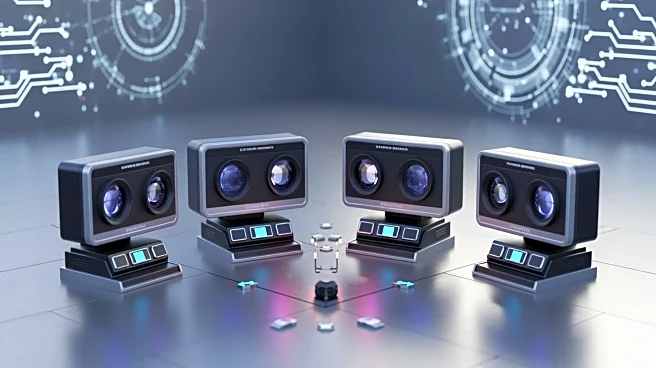What's Happening?
In 2010, Microsoft introduced the Kinect as a groundbreaking gaming device, but it soon became apparent that its true potential lay beyond gaming. A community of hackers, driven by the desire to unlock the Kinect's capabilities, developed open-source
drivers that liberated it from the Xbox 360. This allowed the Kinect to be used in various fields, including robotics and creative technology. The Kinect's ability to project infrared dots and read depth was not new, but its affordability made it accessible for broader applications. The hacking community, motivated by a bounty from Adafruit, worked tirelessly to reverse-engineer the Kinect, ultimately leading to its use in diverse and innovative ways.
Why It's Important?
The transformation of the Kinect from a gaming accessory to a versatile tool highlights the power of open-source communities in driving technological innovation. By making advanced technology accessible, the Kinect hacking initiative democratized tools that were previously expensive and exclusive. This shift not only expanded the Kinect's applications but also set a precedent for how consumer technology can be repurposed for broader use. The Kinect's journey underscores the potential for collaborative efforts to unlock new possibilities in technology, impacting industries such as robotics, creative arts, and even healthcare.
What's Next?
The legacy of the Kinect continues as its technology finds new applications in AI and machine learning. As AI advances, the capabilities initially unlocked by the Kinect are being surpassed, with AI providing more efficient and versatile solutions. The Kinect's story serves as a reminder of the potential for consumer technology to evolve and adapt, driven by community innovation. Future developments may see similar transformations as new technologies emerge and are embraced by open-source communities.
Beyond the Headlines
The Kinect's evolution reflects broader trends in technology, where consumer devices are increasingly seen as platforms for innovation rather than fixed products. This shift challenges traditional notions of ownership and control, as users and developers collaborate to redefine the purpose and potential of technology. The Kinect's story also highlights the ethical considerations of hacking and reverse engineering, raising questions about intellectual property and the balance between innovation and regulation.















